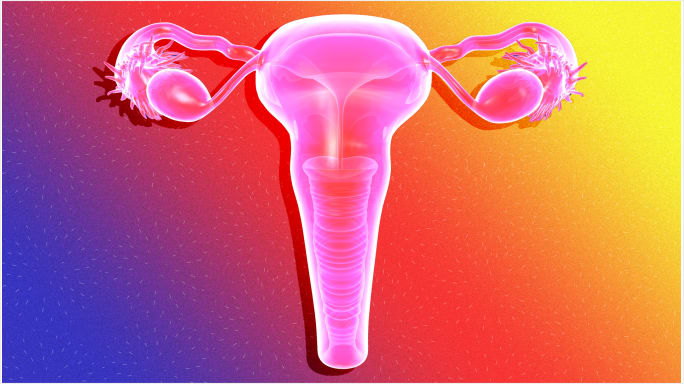Meet Natali Perilo, a behavioral scientist who uses science, psychology, and behavior to help her clients approach life obstacles and reach their professional dreams.
We got to sit down with her to learn more about what she does.
What do you do and why should readers know about it?
Natali Perilo: I’m a behavioral scientist with a board certified behavior analyst background. What does that mean? I study individual and group behaviors to identify areas of deficit or problem areas in learning, communication, performance management, motivation, and leadership. I locate the why someone does something, and predict the “when” will they do that behavior again by analyzing the “why?” Often we encounter interactions with others that may seem personal and subjective- but if we dig down deeper, that person’s behavior is occurring because of a history of different types of consequences and experiences that now inform that person. Readers should know about behavioral science, because it involves action oriented strategies and tools that can change individual lives in socially significant ways – and who doesn’t want to improve their lives or the lives around them?!
Why is behavioral analysis an important field of work to be aware of?
NP: Behavior analysis is essential to us all in understanding why people do what they do, and how can I react to that person the next time. It gives us objective information to navigate social interactions on a daily basis. We need science to help us make decisions and to make the world a better place.
What is your favorite thing about the work you do and the impact it has on people?
NP: I love seeing the science work, and witnessing the results and progress with each case. Seeing someone’s life improve because of the strategies and plans you have put into place [this] is the reason I keep running around NYC.
What are your hopes for your future and the future of your work as a behavior analyst?
NP: I would love to see behavioral science utilized in every business to address: Workplace motivation, performance management, leadership strategies, communication, and diversity issues. There’s a great need for behavioral science at the government level in establishing new policies, but also when dealing with catastrophes like the water issue in Flint. Behavioral Science should be utilized to create an immediate action plan on how to react using behavior based- safety strategies, and to take proactive steps in preventing this issue from occurring in Flint as well as other cities in the US. Obama just created a Behavioral Science department to address policies and decision-making at the government level.
Is there something specific that sparked your interest in behavioral analysis and science?
NP: When I was a teenager, I was often bullied for being “different” and for “looking different.” I had a hard time speaking up for myself, and often connected with other teens that were also a bit different than the popular crowd. I eventually found myself in situations where I had to advocate for others because they were made fun of due to their sexual orientation, or for their abilities or disabilities. Later on in college, I was exposed to applied behavior analysis and saw it as a scientific way to teach others how to advocate for themselves using language, verbal and non-verbal ways.
What do you consider to be one of the most important aspects of your work, be that with research, consulting, or otherwise?
NP: Any time you come across a client, regardless of age, gender, and social ability, you have to remember that they are a person first and foremost. You want to help them identify ways to improve their lives, but regardless of their deficits, they are a person who may have a different perspective on the issue than you. I was at the Lady Project Summit speaking last weekend and mentioned that one key strategy to being a leader is “perspective taking”- looking at yourself as if you were the audience watching you act on stage. It’s important to not only look at others objectively, but it’s important to be able to look at yourself objectively. How am I coming across to others? If the other person doesn’t understand me or isn’t executing the task I gave them- perhaps it’s something I’m doing wrong- Not “what are they doing wrong?”
What advice would you give for other women who want to get more involved with or informed of behavioral analysis?
NP: Get involved in science, social sciences-psychology, anthropology, sociology, and even education. I think it’s important to have an understanding of human development, if you are going to understand human interactions, is knowing how we develop skills at an early age is important to understand from a gender or non-gender perspective of how our culture reinforces skills, communication, and interactions. If you are really interested in a behavioral science 101, you can contact me for a workshop or you can attend the Sally Conference, a behavior-based leadership conference for mid-career women in tech!
Can you describe one of your proudest moments since starting your work?
NP: A few proud moments pop up-
The first one was many MANY years ago when I was working in a clinic for behavior analysis and working predominantly with young clients who were struggling in school or with behavioral and language disorders. I actually watched this young lady grow from a toddler who couldn’t say one word to a school aged child- and she went from being given a diagnosis where she would be in a center based learning environment to becoming mainstreamed and going to school and having friends. She grabbed my hand on her graduation day from the clinic and said, “Thank you, Natali. I know what you did. You taught me how to grow.”
My second proudest moment was a few weeks ago I was giving a workshop on behavioral science and leadership strategies, and a woman came up to me and said that she was happy to have participated in my workshop and that she could go back home and quit her job with objective information on why her current place wasn’t working for her. She already has another job lined up and is empowered with science to move forward.
What has been one of your biggest career challenges, and how did you overcome it?
NP: I have come into contact with a lot of sexual and age discrimination while climbing the career jungle gym. Sometimes the discrimination is overt- and can be easily identified and dealt with meaning I have to call them out on it, but often times, we come into contact with covert harassment and discrimination that is harder to take immediate action because the other person may not know they are saying something that is offensive, and or they are being discreet about their exchanges. Overcoming these obstacles because I’m a woman has been the greatest challenge. Any time someone tries to “box” me into a particular label, I try to prove them wrong. I think we all have to push boundaries in respectful ways, in order to the change the ratio in the workplace culture; we have to start at the individual level- ME!
Do you have any advice for young girls who want to learn more about behavior-based leadership?
NP: There are a lot of great articles out there on leadership; sometimes you have to sift through some of the subjective articles, and make sure that you read something that has data and empirical information attached to it.
You can learn more about Natali’s work on her website.




comments